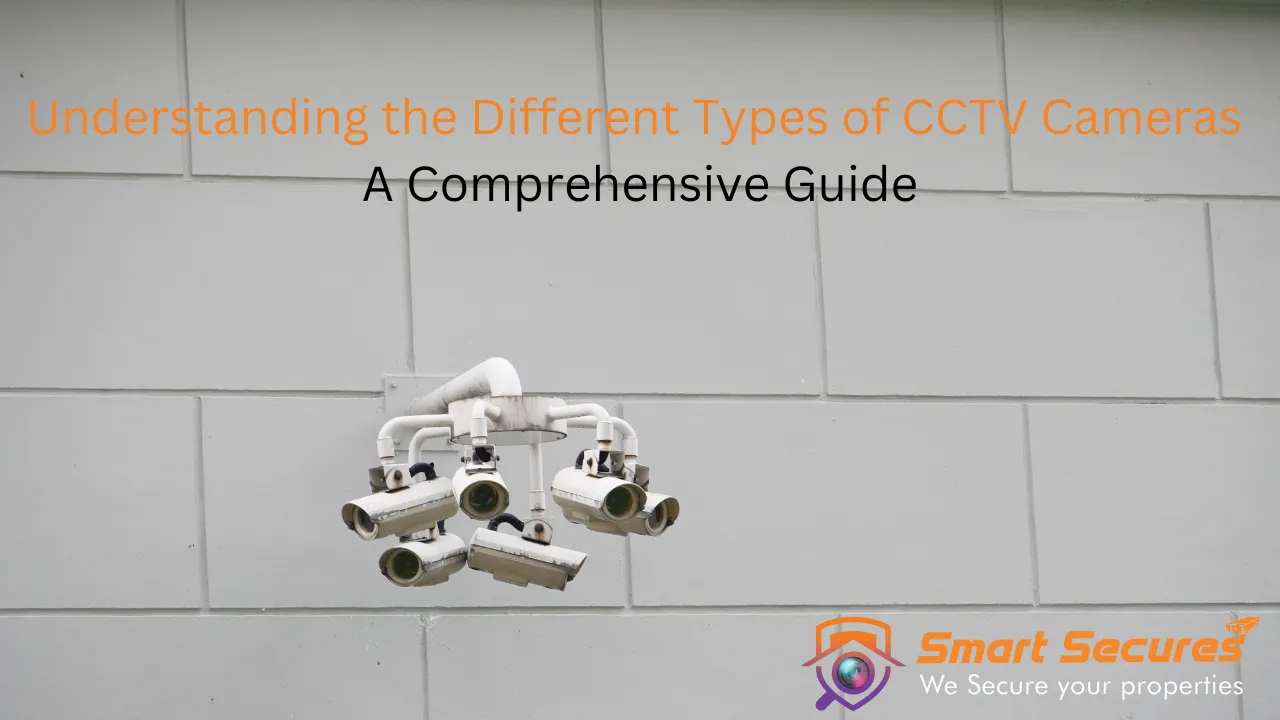Home > Blog > Understanding the Different Types of CCTV Cameras: A Comprehensive Guide
When it comes to security, CCTV cameras are one of the most essential tools in protecting homes, businesses, and other properties.

When it comes to security, CCTV cameras are one of the most essential tools in protecting homes, businesses, and other properties. They offer real-time monitoring and can help deter criminal activity. But with so many different types of CCTV cameras available, it’s important to understand which one best suits your needs. This article provides an in-depth look at the different types of CCTV cameras, how they work, and their advantages and disadvantages.
Closed-circuit television (CCTV) is a surveillance system where the video footage is transmitted to a specific set of monitors or recording devices. Unlike broadcast television, the footage from CCTV cameras is not accessible to the public, which makes it more secure.
CCTV cameras come in various shapes, sizes, and features. They can be installed indoors or outdoors, and their functions can range from simple monitoring to advanced video analytics and motion detection. Below, we’ll explore the different types of CCTV cameras and their applications.
Dome cameras are perhaps the most commonly recognized type of CCTV camera. They are named after their dome-shaped housing, which makes them discreet and harder to tamper with. These cameras are widely used in both residential and commercial settings.
Bullet CCTV cameras are designed with a long, cylindrical shape, resembling a bullet or a small tube. These cameras are often used for outdoor surveillance due to their durable build and ability to withstand harsh weather conditions.
PTZ CCTV cameras are highly flexible and versatile. They can be manually or automatically controlled to pan, tilt, and zoom, making them ideal for covering large areas or adjusting the field of view.
As the name suggests, day/night cameras are designed to capture clear footage regardless of lighting conditions. These cameras can work in low light or complete darkness, making them ideal for surveillance at all times of the day.
Wireless CCTV cameras are growing in popularity due to their ease of installation. These cameras use Wi-Fi to transmit footage, eliminating the need for complicated wiring.
IP CCTV cameras (Internet Protocol cameras) are advanced surveillance systems that transmit video footage over the Internet. They offer high-resolution video and can be accessed remotely from anywhere.
Analogue CCTV cameras are traditional surveillance cameras that transmit footage to a recording device using coaxial cables. Although digital and IP systems are replacing them, they are still commonly used in many applications.
Thermal CCTV cameras use heat signatures to detect objects or individuals. These cameras are especially useful in low-visibility environments, such as during the night or in smoke-filled areas.
Hidden cameras, or spy cameras, are designed to be concealed within everyday objects like smoke detectors, clocks, or air purifiers. They provide covert surveillance, often used for monitoring employees, visitors, or for personal security.
These cameras combine the benefits of wireless technology with the advanced features of IP cameras. They transmit video footage over the internet without needing physical cables, offering flexibility in installation.
These cameras are similar to traditional bullet CCTV cameras but with the added feature of night vision. This makes them ideal for 24/7 monitoring, ensuring clear footage regardless of the time of day.
These specialized cameras are designed to capture high-quality images of license plates, making them ideal for monitoring vehicles in parking lots, toll booths, and other high-traffic areas.
Smart CCTV cameras are equipped with advanced technology, such as motion detection, facial recognition, and AI-powered analytics. They can be integrated with other smart home devices, offering greater flexibility and control.
Choosing the right type of CCTV camera depends on your specific needs and the area you need to monitor. From simple bullet cameras to advanced IP cameras with remote access, there’s a solution for every type of property and security requirement. When selecting a CCTV system, consider factors like resolution, weather conditions, ease of CCTV camera installation, and your budget. With the right camera, you can ensure that your property remains secure 24/7.
Analogue cameras use traditional cables to transmit footage, while digital (IP) cameras use the internet for transmission, providing better resolution and more advanced features.
Yes, cameras with night vision or thermal imaging can capture clear footage even in low light or complete darkness.
Wireless cameras are secure as long as they are protected with strong encryption and secure passwords to prevent unauthorized access.
Yes, many modern CCTV cameras, especially IP cameras, can be accessed remotely through mobile apps or web browsers.
For home use, dome cameras or bullet cameras with night vision are popular choices due to their versatility and ease of use.

5,852 reviews